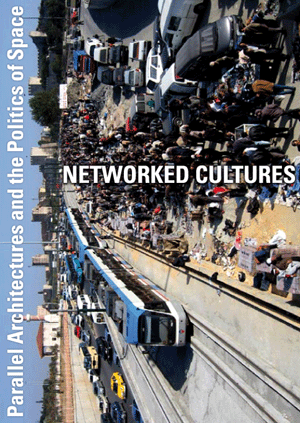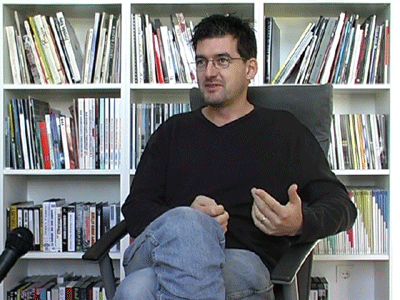_loginregistrieren_database_5 Factories - Worker Control in Venezuela Dario Azzellini & Oliver Ressler _ALMOSTREAL ECF _AnArchitektur Jesko Fezer _Arizona Road Azra Aksamija _Balkan Konsulat rotor _Bata-ville: We are not afraid of the future Nina Pope + Karen Guthrie / www.somewhere.org.uk _Black Benz Race krcf in collaboration with Felix Stalder, Arben Gecaj, Faton Topalli and Osman Osmani _Black Sea Files Ursula Biemann _Camp La Jolla Military ParkOwen Mundy _CHANGE REALITY: Renaming the Streets of Zagreb REINIGUNGSGESELLSCHAFT _Conceptual Paradise. There is a place for sophistication Stefan Roemer _de-regulation Irit Rogoff, Kutlug Ataman, Stefan Roemer_news ____________Bloomberg SPACE, London ____________Kumu Art Museum Tallinn ____________Open Space, Open Systems - Vienna ____________CAA 2011 Conference, New York ____________Forum Stadtpark, Graz ____________Symposium, Istanbul ____________lungomare, Bozen/Bolzano ____________Metropolis Biennale 2007-17, Copenhagen ____________new publication available now ____________Mestna Galerija, Ljubljana ____________Livestream of Networked Cultures documentary ____________ |
_ConversationsOliver Ressler
Oliver Ressler
PM/HM: Your work as an artist focuses strongly on economic issues and, in particular, on forms of alternative economics. How do you feel about the relation between such an artistic practice and political activism? Oliver Ressler: In 1999 I produced an installation called The Global 500. It focused on the 500 largest transnational corporations and how they related to a discourse on economic globalisation. The exhibition was presented for the first time some months before protests against the World Trade Organisation in Seattle. I was extremely interested in what was happening there, and produced two films related to the anti-globalisation movement in 2001/2002. The movement also demonstrated how Margaret Thatcher’s well-known slogan “There is no alternative!” can’t be true. At the time I had some knowledge about alternative models, though not much. So I started to investigate and through some books I got further information about different concepts and models for a system that would no longer be capitalistic. The project Alternative Economics, Alternative Societies, which I started in 2003, is the largest I have ever worked on and I continue to do so today. At present it consists of sixteen videos on different models and concepts for alternative economies and alternative societies. Some are historical ones, such as the workers’ collectives during the Spanish Civil War or the Paris Commune or workers’ self-management in Yugoslavia during the 1960s and 1970s. Very elaborate new economic concepts have also been included, such as “Participatory Economics” by Michael Albert; and concepts for a new organisational structure for society as a whole, for instance “Inclusive Democracy” by Takis Fotopoulos or “Libertarian Municipalism”, which is presented within my project by Chaia Heller. I have also included interviews that focus more on certain methods and aspects, ones that might be of interest when considering alternative economies or societies. For example, the concept of “Free Cooperation” by Christoph Spehr or an interview with John Holloway on changing the world without taking power. The idea of my project is to present a variety of different projects, concepts and models. Some of them come from a more anarchist background, others from a more socialist background, but all of them aim to contribute ideas for organising society differently and fighting for such alternatives – that’s why I think all these authors can be considered activists to some extent. Within the scope of this travelling exhibition and the sixteen video interviews I conducted, I have tried to give a condensed view of those aspects of the concepts that I regard as most important. The videos are between twenty and thirty-seven minutes long, and give the audience an opportunity to access these concepts. People walk around the exhibition space and choose videos according to their interests. If they are especially interested in a concept they may go to the author’s website or buy the book. I think the project Alternative Economics, Alternative Societies provides a helpful structure to generate discussion and make some of these concepts more accessible, and lots of activists have used it as a tool in the twenty-one cities in which it was realised over the last four years. PM/HM: Your video works are available for purchase on your own website, which yields a concept different to traditional ways of distributing art; it creates a link between your work and broader audiences outside the gallery system. Oliver Ressler: I try to keep the prices of my videos low so that many individuals, libraries and universities can afford to buy them. I work together with some distributors and the DVDs are sold for between fifteen and thirty-five euros. So it’s possible to buy a DVD just like a book. It’s important for me not to limit the videos or my art production in general to a very small group, but to make them accessible to a broader audience. Especially since the videos are often related to social movements or resistance groups. I work on these issues because I would like to support the groups and their struggles, and I think the best form of support I can offer is by doing this work and making it available not only to people who see exhibitions or visit film festivals, but also to activists, who are usually very interested in learning about other activists’ strategies and experiences, ones that might affect their own strategies. I worked together with Dario Azzellini on two films about Venezuela. Our concepts were in both cases so clear and accessible that even people who didn’t have knowledge about contemporary art understood and valued them. Many supporters of the Bolivarian process use our films for education and mobilisation in their communities, and for me it is an important aspect that the films I’ve realised are being used by the very activists without whom it would not have been possible to make them. For example, the film Venezuela from Below, our first collaborative film on Venezuela from 2004, is now also being distributed on the black market in Caracas. You can buy the DVD there for less than a euro. For someone who wants to see the film in Venezuela, it is probably easiest to buy it on the black market – that is, for those who missed the broadcasts of the film on TV. When we presented the film 5 Factories – Worker Control in Venezuela, which we finished in 2006, 300 people came to the first presentation in Caracas, many of whom were workers from the factories where we conducted the interviews. They came to Caracas even though some of the factories were in cities fifteen hours away. The workers made this effort because they were, on the one hand, proud that they or their colleagues had appeared in the film and, on the other hand, they were extremely interested in finding out what workers in other factories in the country had to say about their struggles and how they organised their factories. Since my work relies on the time and collaboration of others, I’m interested in sharing and returning the work to them in exchange. Many artworks I have produced are available completely free. In 2001 I did a magazine together with Martin Krenn that was related to the Border Crossing Services project; it was distributed via direct mail to 12,000 households in the border region between Austria and Slovenia. It presented what migrant organisations and anti-racist organisations in Austria and Germany have to say about crossing borders, illegalisation, migration and the European politics of exclusion. It helped to reveal their viewpoints to the rural area between Austria and Slovenia, which was a highly militarised Schengen border at the time. PM/HM: How do these documentations of existing social and political movements introduce a notion of implicatedness which extends the given forms of political agency? Oliver Ressler: I think it’s clear that I’m very dissatisfied with the existing capitalist society. So the main focus of my work over the last ten years has been on how to get rid of this society and contribute to the creation of a new one. Some projects are more on the level of analysis and critique of social reality; others focus on forms of resistance; still others – such as the two projects on Venezuela or Alternative Economics, Alternative Societies – concentrate on ideas that might be of importance when considering how to achieve a new society. I share many ideas with activists, and may be considered an activist myself, so that on certain occasions my position is one of a participating, involved observer. Sometimes the work provides a kind of platform for existing ideas, at other times it creates ideas that do not come directly from activist practices but may still be of great importance for activists. So for me there’s no formula for how my work functions, there are different strategies and different focuses from project to project.
|
_broadcasts_conversations+ Ana Dzokic and Marc Neelen+ Ayreen Anastas and Rene Gabri + atelier d'architecture autogérée (aaa) + Asya Filippova + Sophie Hope and Sarah Carrington + Branca Curcic + Christoph Schaefer + Campement Urbain + Claudia Zanfi + Despoina Sevasti and Poka-Yio + Erden Kosova + Helmut Batista _textsRadio as Spatial Practiceby: Paulo Tavares Survival Kits: Artistic Responses to Globalizationby: Marga van Mechelen What Ever Happened to Cultural Democracy?by: Sophie Hope I don't know how to explain ...by: Anca Gyemant Trading Placesby: Peter Moertenboeck & Helge Mooshammer Milosevic as Architectby: Srdjan Jovanovic Weiss When the Unavoidable Knocks at the Door ...by: Gulsen Bal Tracing Translocality: The BlackBenz Raceby: Felix Stalder travelling lexicon towards a global positioning systemby: Celine Condorelli |
